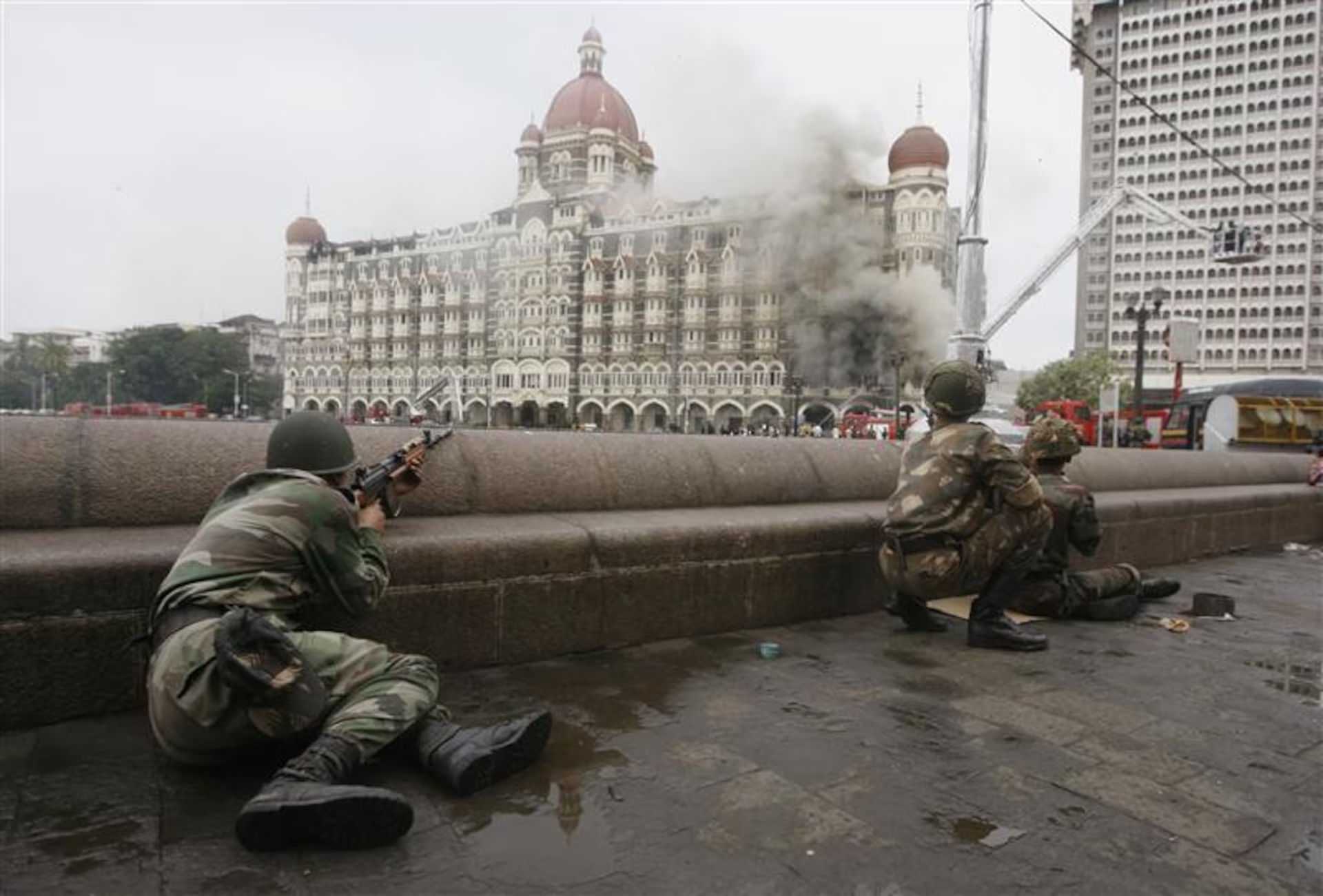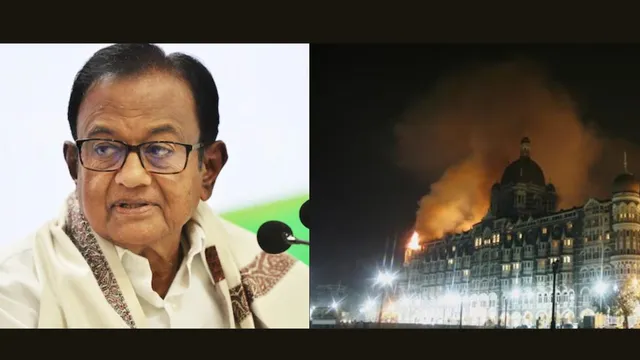- By Priyanka Koul
- Tue, 30 Sep 2025 10:39 AM (IST)
- Source:JND
Former Union Home Minister P. Chidambaram has disclosed that the United States and other global powers pressured the UPA government not to retaliate militarily against Pakistan following the horrific 26/11 Mumbai terror attacks. Speaking candidly in an interview with ABP News, Chidambaram admitted that while “retribution crossed my mind,” the government, swayed by international influence and the Ministry of External Affairs, chose not to launch a military response to the horrific terror attack.
“The whole world descended upon Delhi to tell us ‘don’t start a war’,” he said, recalling the intense diplomatic push to avoid escalation.
The 2008 Mumbai attacks, one of India’s darkest moments, saw 10 Pakistani terrorists unleash chaos across the city, targeting iconic landmarks like the Chhatrapati Shivaji Maharaj Terminus, Taj Mahal Palace and Tower, Oberoi Trident, Leopold Cafe, Cama Hospital, and Nariman House. Over three days, from November 26 to 29, the attackers killed 166 people, including foreigners, before security forces neutralized them.

Indian army soldiers take position during a gun battle at the Taj Mahal hotel in Mumbai, November 29, 2008. (REUTERS)
The lone surviving terrorist, Ajmal Kasab, was later executed in 2012. The scale of the tragedy led to the resignation of then-Home Minister Shivraj Patil, with Chidambaram reluctantly stepping into the role from the Finance Ministry.
“I got a call from the prime minister who communicated that there was a collective decision (by the then Congress president Sonia Gandhi and former PM Manmohan Singh) to shift me to the home ministry. I did not want to exit the finance ministry as I had presented five Budgets and election was due in a year’s time,” he shared.
Chidambaram revealed that the idea of retaliation was seriously considered. He personally discussed it with then Prime Minister Manmohan Singh and other key figures.
“The prime minister had discussed this even when the attack was going on… And the conclusion was, largely influenced by the Ministry of External Affairs, and the IFS, that we should not physically react to the situation,” he recalled.
He also recounted a visit from US Secretary of State Condoleezza Rice, who arrived days after he assumed the home minister role, urging restraint. “And to say, ‘please don’t react’. I said this is a decision that the government will take. Without disclosing any official secret, it did cross my mind that we should do some act of retribution,” Chidambaram noted.
BJP Slams Congress: 'Too Little, Too Late'
The Congress veteran’s remarks have sparked sharp criticism from the BJP, which labeled the admission as “too little, too late.” Union Minister Pralhad Joshi argued that the country already knew the Mumbai attacks were “mishandled due to pressure from foreign powers.” The BJP has long criticized the UPA’s response to the 26/11 attacks as a symbol of its weak stance on national security.
After 17 years, Chidambaram, Former Home Minister admits what the nation knew — 26/11 was mishandled due to pressure from foreign powers. Too little, too late.#CongressFailedNationalSecurity pic.twitter.com/bbWWM5X5gu
— Pralhad Joshi (@JoshiPralhad) September 29, 2025
BJP has often pointed out and praised to its own government’s decisive actions, such as the 2016 surgical strikes after the Uri attack, the 2019 Balakot air strike following the Pulwama attack, and the 2025 Operation Sindoor in response to the Pahalgam terror attack, as evidence of a stronger approach. BJP spokesperson Shehzad Poonawala further alleged that Chidambaram was hesitant to take on the home minister role and pushed for military action, but “others prevailed” in the decision to hold back.
Chidambaram’s revelations shine a light on the complex interplay of domestic and international pressures that shaped India’s response to one of its worst terror attacks, reigniting debates about the UPA’s handling of national security and the influence of global powers on India’s decisions.

